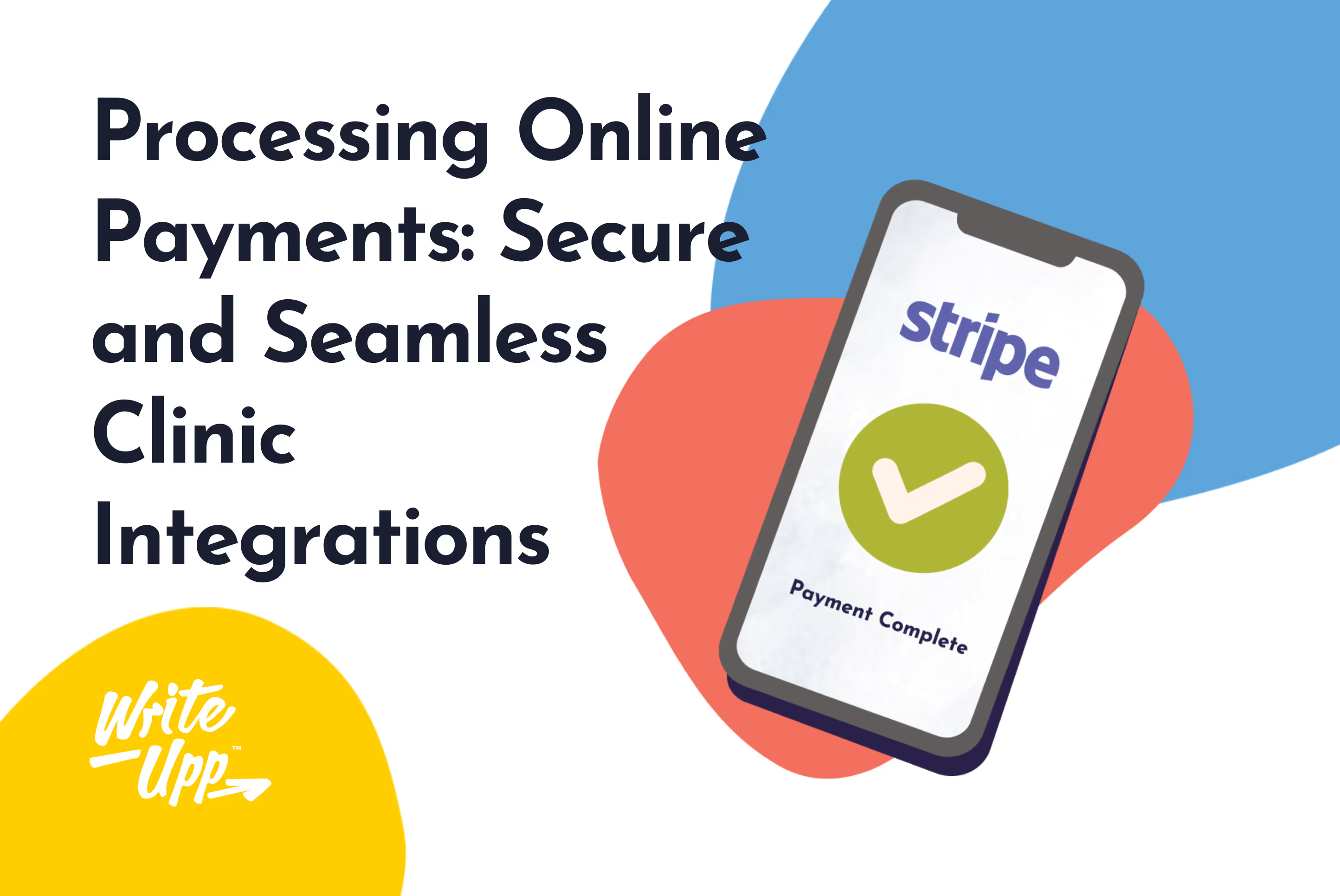Word-of-mouth marketing is five times more effective than paid advertisements.
And you can utilise it in your practice.
A well defined word-of-mouth marketing strategy can generate new business through a continuous flow of customer conversations.
It's so powerful that nearly half of businesses worldwide depend on it to build a loyal client base.
Out of the top five popular ways to recommend a business, word-of-mouth comes first, followed by Facebook, Google, and Twitter.
In this guide, you will discover:
- The meaning of word-of-mouth marketing
- Why word-of-mouth advertising is compelling
- The best word-of-mouth marketing strategies to take your healthcare practice to the next level
What Is Word-of-Mouth Marketing?
Word-of-mouth marketing involves leveraging your clients' experiences with your services to promote your healthcare practice.
In most cases, it's a free form of advertising.
Can you remember the last time you enjoyed something and had to share it with your friends?
That's exactly what word-of-mouth marketing is all about.
It's a form of advertising that doesn't include a sales pitch or sleazy marketing tactics.
Common examples include
- social media mentions
- customer reviews on Google or Facebook
- recommendations between family and friends
This marketing approach is extremely efficient because it's so powerful.
After all, potential clients trust recommendations more than a business reaching out to them and explaining how excellent their services are.
92% of people believe recommendations from family and friends over all other forms of advertising.
The Immense Power of Word-of-Mouth Marketing
Healthcare practices can utilise word-of-mouth to build an army of loyal clients and massively thrive in the industry.
Here are the top benefits of this form of marketing:
1. Word-of-mouth increases your business's visibility in the industry
Your services can't sell like hotcakes unless people know your practice exists.
Word-of-mouth marketing gets people talking about your clinic offline or online.
The more people spread the word about your healthcare practice, the more others get to know you exist and the services you offer.
2. It facilitates long-term loyalty to your business
You engage current and potential customers with word-of-mouth marketing instead of irritating them with advertisements.
You leverage people's compelling stories and experiences in your business to encourage others to continue using your services and refer you to friends and family.
As a result, you easily retain your current clients and affordably find new ones.
3. Potential clients can easily trust you
In a modern world of information overload, word-of-mouth is crucial in building trust and standing out from the crowd.
Word-of-mouth statistics show that 90% of people are more likely to trust a recommended business, even if the recommendation is from a stranger.
The 5 Best Word-of-Mouth Marketing Strategies You Can Use in Your Healthcare Practice
A word-of-mouth marketing strategy aims to create brand advocates for your business.
Below, we have compiled the top 5 word-of-mouth marketing strategies that research has proven to work.
These strategies can help you build a loyal fan base and quickly grow your business.
1. Use Customer Testimonials and Reviews on Your Website
Reviews and testimonials are extremely powerful word-of-mouth messaging. Leveraging them on your website can help you attract more patients.
Research shows that many patients use online reviews to guide their decisions when selecting a health practitioner.
In fact, 6 out of 10 (59.9%) patients say they have chosen a doctor based on positive online reviews.
Here's how to use testimonials and reviews as a word-of-mouth marketing strategy.
Check the top review platforms to see what people say about your business. Bring that content from the review platforms onto your website or social feed and link to the original review.
If you don’t have any online reviews, you can get your business onto review platforms like Google My Business and ask your current patients to review your services.
You can also collect online reviews directly on your website.
2. Post Relevant Content on Your Social Media Accounts
Social media is a gold mine for healthcare practices. In 2021, social media had about 4.26 billion users worldwide, which will skyrocket to 6 billion by 2027.
Social media is a massive opportunity to spark word-of-mouth and grow your business.
You can make use of social media to encourage conversations that engage your potential customers, build awareness about your services, and grow your revenue.
Providing engaging content that helps people or improves their lives matters most when posting on social platforms.
Consider the following when posting on social media to encourage likes, retweets, and shares:
- Post content regularly on your business page. There are dozens of distractions on social media. If you don't post content consistently, your audience will quickly look for the next best thing. Show up regularly on social media; the best way to achieve that is to schedule posts.
- Interact with prospects (potential customers). Engage with your audience as much as possible. For example, reply to their messages to encourage conversations. It’s called social media for a reason!
- Stay on top of trends. Knowing current trends helps you create content that people want. It also enables you to engage with prospects the way they expect.
As with everything else in life, social media is hard work. It requires commitment.
But if you can remain helpful, playful, and active with your social media audience, you will build an engaged and committed following.
If simultaneously handling social media activities and running your practice sounds like a lot of work, you can hire an experienced social media manager.
3. Offer Discounts
Word-of-mouth marketing is all about getting people to talk, and discounts are a great way to achieve that.
In the current climate, potential clients are looking for a bargain.
A discount might just be the good deal you need to grab their attention, spark a conversation, and have a client waitlist in your business.
One of the most popular ways to offer a results-driven discount is to offer discounts for referring a friend.
That way, you create a win-win situation that motivates clients to recommend your healthcare practice to others.
You can also promote your discounts on your online booking system.
4. Leverage Cross-Promotion Partnerships
Cross-promotion partnerships involve sharing similar promotional material with another business with the same target audience.
For example, a fitness and wellness brand might be a perfect match for your healthcare clinic.
With cross-promotion partnerships, you indirectly access the other brand's audience.
If the brand is more established than yours, it can increase your practice's credibility. This word-of-mouth marketing strategy is popular on social media, where businesses help each other grow their client base.
5. Engage Social Media Influencers
This one isn’t for everybody, but with influencer marketing you can leverage endorsements and mentions from people with a substantial social following who are experts within your niche.
This word-of-mouth marketing strategy works because influencers are established with followers who trust their recommendations.
A study found that 49.3% of people had made a buying decision based on an influencer's recommendations.
If you’ve worked through the steps above and still want more clout in your word-of-mouth strategy, here's an overview of getting started with influencer marketing:
Step 1: Choose the Most Suitable Platform
Common platforms to find influencers include Facebook, Twitter, Instagram, and YouTube.
You can focus on one platform first and expand on others later.
Ideally, your business should have a presence on your chosen platform.
Step 2: Decide on Goals and Create an Engaging Message
Define your reasons for implementing word-of-mouth marketing through an influencer.
Common reasons include increasing awareness about your healthcare practice and growing sales in your business.
Ensure you create your message and define your goals based on your business's needs.
Step 3: Set a Budget and Management Strategy
Choose an influencer whose charges won't affect your business's financial stability.
Identify what your business can comfortably spend without affecting your ability to fund daily operations and pay your bills on time.
An influencer marketing campaign isn't a set-it-and-forget-it type of strategy. It requires careful follow-up to ensure that the influencer posts your content on time without errors in the call to action and tags.
For this reason, set a strategy on how you will manage influencer marketing.
Step 4: Choose the Right Influencer in the Suitable Platform
Thoroughly research influencers to identify the right one for your business. Here are some questions to help you out:
- Do you want to work with a micro-influencer or more established ones? More established influencers charge expensive rates.
- Have the influencers worked with similar businesses before?
- Does the influencer post content regarding similar services?
- Is the influencer legit? Check their pages and posts to see the number of followers and content engagement. The goal is to avoid fraudulent accounts.
- Does the influencer fit in your budget?
Step 5: Reach Out to the Influencer
You can directly contact a micro-influencer through a private message on the same platform.
If the influencers are more established, check their profile. Most include their business inquiries, contacts in their bio, or link to a website.
Now it’s time to take your practice to the next level
Word-of-mouth is one of the most powerful marketing strategies you can use as a private practice clinician. Never underestimate its power.
It can boost brand awareness, increase client engagement, and increase revenue in your healthcare business, and a lot of the time it’s completely free!
If you have any questions, or just want to chat to us about what an integrated practice management solution could do for you and your practice, just grab us for a live chat.
The button is just there in the bottom right corner of your screen.



Join over 50,000 clinicians that we've helped using WriteUpp
Start my free trial






